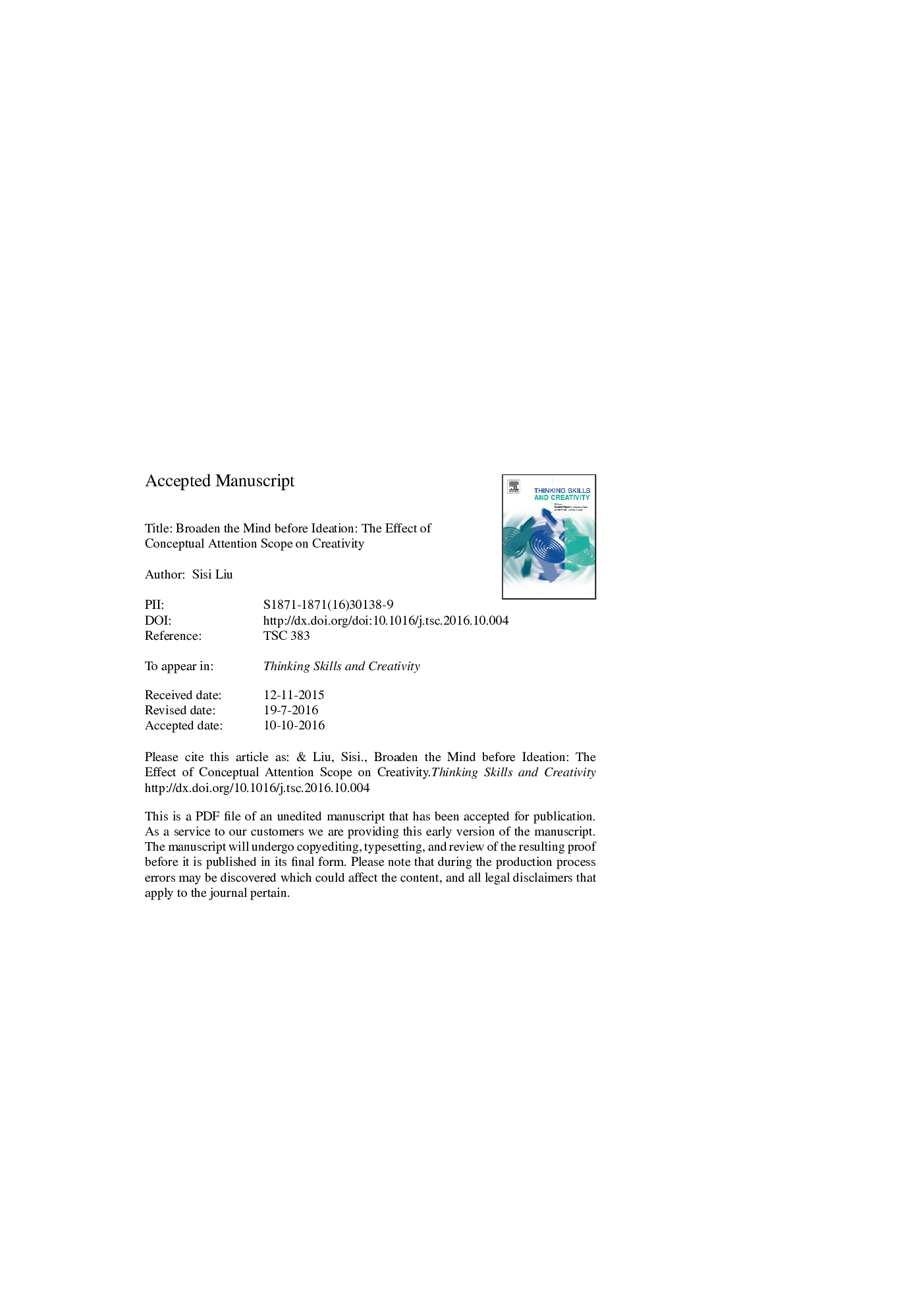| Article ID | Journal | Published Year | Pages | File Type |
|---|---|---|---|---|
| 4941905 | Thinking Skills and Creativity | 2016 | 34 Pages |
Abstract
Many theorists have argued that creativity essentially derives from associating and combining seemingly unrelated concepts; by implication, psychological factors that facilitate the association of remote concepts may be conducive to creativity. The present study attempted to test the potential effect of one of these factors, the scope of conceptual attention - defined as the range of activation of mental representations in long-term memory. Broad conceptual attention engenders activation of a wide range of memory contents simultaneously, increasing the possibility of discovering useful associations between remote concepts, thus the hypothesis was that broad conceptual attention facilitates creativity. Three experiments were conducted using two different manipulations of conceptual attention scope. Their effects on creativity shown in imagined alien creatures were observed. The results demonstrated evidence to support the hypothesis. Specifically, Experiment 1 revealed that participants who had to generate free associates to the presented categories subsequently showed higher levels of creativity than those who had to generate associates confined by category boundaries, namely exemplars of the same categories. Experiment 2 aimed to replicate the effect of the manipulation on creativity and also examine its impact on analytic thinking. The results suggested that conceptual attention scope might affect creativity, but did not impact deductive reasoning. In Experiment 3, the participants whose attention was broadened by producing atypical category exemplars were more creative than those who generated typical exemplars. Overall, the findings lent support for the associative theory of creativity and similar accounts, and their practical significance is discussed in this paper.
Keywords
Related Topics
Social Sciences and Humanities
Psychology
Developmental and Educational Psychology
Authors
Sisi Liu,
